Life
Sign up for our newsletter
We summarize the week's scientific breakthroughs every Thursday.
-
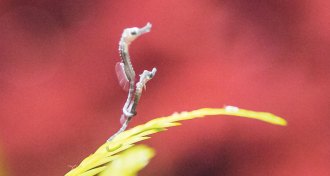 Animals
AnimalsToddler seahorses are bumbling and adorable
Rice-grain-sized youngsters can’t yet get a grasp with their tails.
By Susan Milius -
 Neuroscience
NeuroscienceAge affects brain’s response to anesthesia
Anesthesia has different effects on young and old brains.
-
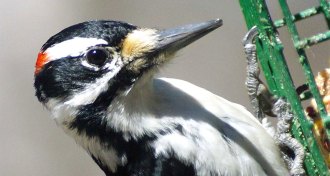 Animals
AnimalsHelp ornithologists develop bird photo ID tool
Cornell ornithology lab’s computer identification of common North American avian species needs your photos.
-
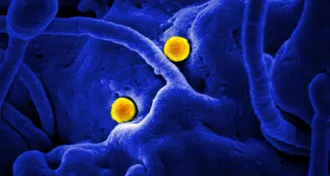 Life
LifeAntibody that fights MERS found
Scientists have isolated a human immune protein that fights the MERS virus in mice.
-
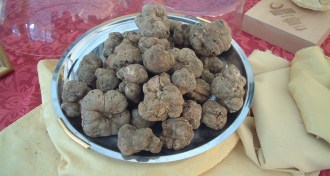 Life
LifeMicrobes’ role in truffle scents not trifling
Truffles make their prized aroma with a little help from their microbes, chemists suggest.
By Beth Mole -
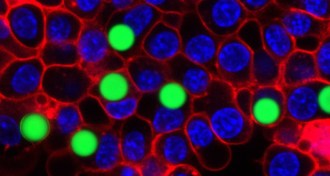 Life
LifeLaser light made inside cells
Microscopic beads and oil droplets become lasers when implanted into cells.
By Andrew Grant -
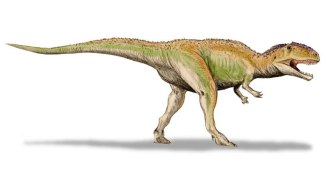 Paleontology
PaleontologyFossils illustrate evolution of life
Paleontologist Donald Prothero takes readers through the evolution of life on Earth from the earliest oozes of goo to our recent relative Lucy.
-
 Animals
AnimalsStinkbugs are color conscious when it comes to their eggs
P. maculiventris moms control the color of their eggs, seemingly pairing darker eggs with darker surfaces.
-
 Animals
AnimalsStink bug moms are color conscious when it comes to their eggs
P. maculiventris moms control the color of their eggs, seemingly pairing darker eggs with darker surfaces.
-
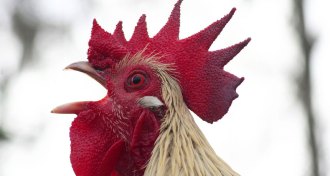 Animals
AnimalsSocial pecking order gives roosters something to crow about
Small groups of laboratory roosters keep to the rankings for orderly morning crows.
By Susan Milius -
 Paleontology
PaleontologySudden heat spikes did in Ice Age’s mammoth mammals
Abrupt warming and excessive hunting by ancient humans were responsible for the disappearance of many large mammals, including woolly mammoths, during Earth’s last glacial period.
-
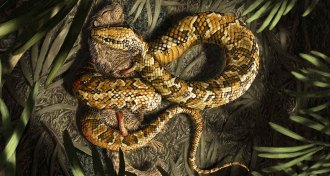 Paleontology
PaleontologyMuseum fossil links snakes to lizards
Scientists have discovered the fossilized remains of the first four-legged snake. The fossil bridges the gap between snakes and lizards.
By Meghan Rosen